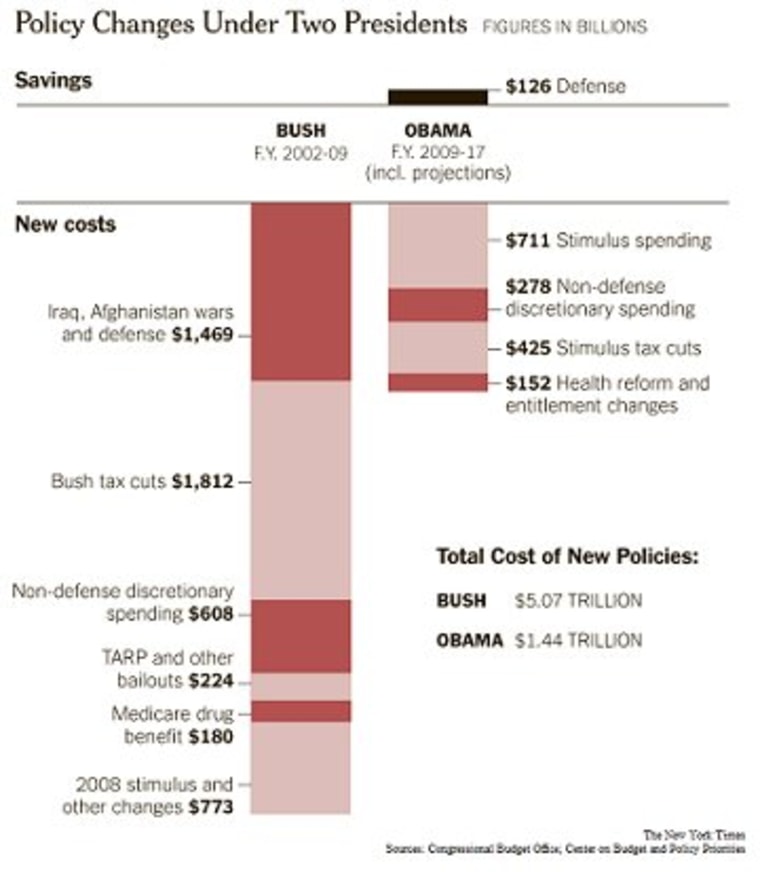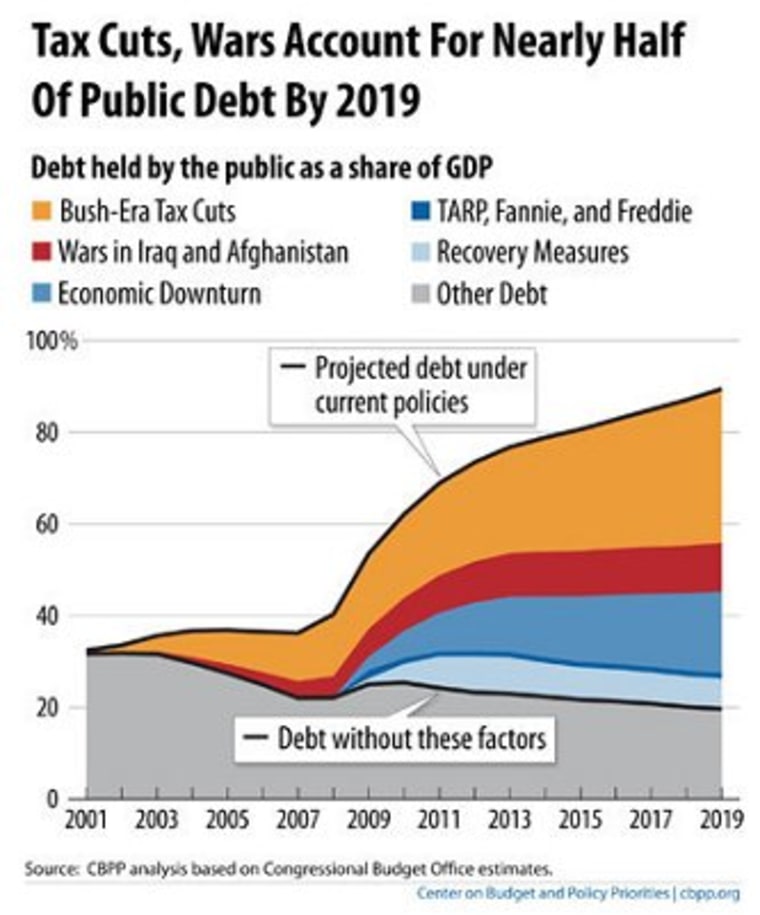CBS News' Mark Knoller published an item this week, arguing that President Obama has added more to the national debt in three years than President George W. Bush did in eight years. The piece proved to be wildly popular with conservatives, which is a shame -- Knoller's piece is misleading and largely inaccurate.
As the CBS reporter sees it, the evaluation is a simple matter of arithmetic. Bush added about $5 trillion to the debt during his tenure, and the debt has gone by a nearly-identical figure under Obama. Ergo, based on the postings from Bureau of Public Debt at the Treasury Department, the observation is sound.
But it's not. Knoller doesn't mention, for example, that the debt increase "on President Obama's watch" includes a $1.3 trillion deficit that was sitting on his desk the day he took office, left there by Bush/Cheney. It also fails to explain to the policies behind deficits. Consider this chart, for example, published by the Center on Budget and Policy Priorities:
For that matter, it also matters which administration's policies are driving the debt. Here's another image, put together by the New York Times, which provides context Knoller's piece did not.

And even after we take all of these facts under consideration, there’s another angle that often goes overlooked: must this additional debt necessarily be deemed a bad thing?
Looking back over the last several years, we can say definitively that Republicans were entirely responsible for the nation’s fiscal mess. But given the larger circumstances, we can also say with confidence that it makes a lot of sense for the Obama administration to run large deficits: he inherited a brutal recession that required expensive federal intervention and led to low revenues, as well as two ongoing foreign wars, which his predecessor never even tried to pay for. Of course the president is running large deficits; trying to eliminate them now would make an economic catastrophe even worse.
Knoller’s piece doesn’t provide any of this information. It’s a bit of a mess.
